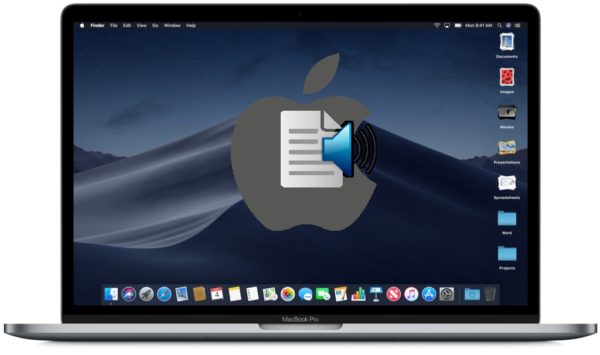Introduction
In today’s digital world, your personal brand is your reputation. Whether you’re a business owner, freelancer, digital marketer, or job seeker, building a strong online presence helps establish credibility, attract opportunities, and set you apart from the competition. A well-crafted personal brand showcases your expertise, values, and personality, making it easier for potential customers, employers, or business partners to trust and engage with you.
However, building a personal brand is not just about having a polished social media account or a well-optimized LinkedIn profile. It requires strategic content creation, audience engagement, and consistency. From creating marketing campaigns that highlight your strengths to using search engines to improve visibility, every step matters. This guide will cover the best strategies to develop a compelling brand identity, ensuring you gain influence and credibility in your industry.
Understanding Personal Branding
What is a Personal Brand?

A personal brand is the way you present yourself to the world, both online and offline. It encompasses your expertise, values, skills, and personality, shaping how others perceive you. Your brand is built through your actions, the content you share, and the reputation you develop over time. A well-crafted brand identity helps you stand out in your industry, build credibility, and attract opportunities that align with your goals.
In the digital age, having a personal brand is more important than ever. Whether you’re an entrepreneur, freelancer, or job seeker, the way you position yourself online plays a significant role in how potential clients, employers, or business partners interact with you. A strong brand not only showcases your unique strengths but also helps you establish authority in your field.
Why is Personal Branding Important?
Building a strong personal brand enhances your credibility, career prospects, and professional reputation. It creates opportunities for business growth, job offers, and collaborations by making you more visible and trustworthy within your industry.
Key benefits of a strong personal brand include:
- Increased Credibility – When people see you consistently sharing valuable content and insights, they are more likely to trust your expertise.
- Enhanced Career Opportunities – Professionals with an established online presence are more likely to attract job offers, speaking engagements, and business partnerships.
- Authority and Thought Leadership – A well-defined personal brand positions you as an expert, making it easier to gain recognition and influence in your field.
- Better Networking and Relationships – Your brand helps you connect with like-minded professionals, industry leaders, and potential customers.
- Greater Online Visibility – With more businesses and professionals leveraging social media marketing, a strong brand ensures you remain competitive in today’s digital landscape.
By investing in social media marketing, content creation, and networking, you can build a personal brand that opens doors to new opportunities and long-term success. Whether you’re growing a business, looking for new clients, or advancing your career, a strong online presence is a powerful tool for professional growth.
How to Build a Strong Personal Brand Online
1. Define Your Unique Brand Identity
Before establishing an online presence, identify your niche, core values, and key messaging. Ask yourself:
- What skills or expertise set you apart?
- Who is your target audience?
- What problems can you solve?
Having a clear brand identity helps create content that aligns with your mission. Whether you focus on marketing campaigns, technology, leadership, or personal growth, your brand should communicate authenticity and expertise.
2. Optimize Your Social Media Profiles
Your social media accounts serve as digital business cards. Ensure your LinkedIn, Twitter, Instagram, and other platforms reflect your professional image.
- Use a high-quality profile picture to create a trustworthy impression.
- Write a compelling bio with keywords related to your expertise.
- Keep your content consistent and aligned with your brand identity.
- Engage with small businesses and professionals to expand your network.
A well-optimized social media presence increases your visibility, making it easier for search engines to rank your profile and attract new opportunities.
3. Create Valuable and Engaging Content

Content creation is the foundation of a strong personal brand. Sharing valuable insights, industry trends, and personal experiences establishes credibility and attracts an audience.
- Write blog posts or LinkedIn articles to showcase your expertise.
- Post educational videos, infographics, and carousels on social media.
- Share case studies, success stories, and testimonials to inspire trust.
- Use social media posts to engage with followers and share your journey.
Consistency is key. Posting high-quality content regularly ensures higher engagement and visibility.
4. Leverage LinkedIn for Professional Growth
LinkedIn is one of the best platforms for building a personal brand. To maximize your presence:
- Post insightful updates about industry trends and career experiences.
- Engage with other professionals through meaningful comments and shares.
- Publish thought leadership articles to establish credibility.
- Join LinkedIn groups and participate in discussions to expand your network.
An optimized LinkedIn profile enhances your professional visibility and attracts job offers, partnerships, or speaking opportunities.
5. Network and Build Meaningful Relationships
A strong personal brand isn’t just about content; it’s about building relationships. Engaging with industry leaders, mentors, and peers helps expand your network and credibility.
- Attend virtual and in-person networking events to connect with professionals.
- Collaborate with influencers or brands to increase visibility.
- Participate in industry discussions on Twitter, Reddit, and LinkedIn.
Building relationships strengthens your brand reputation and opens doors to new opportunities.
6. Be Consistent Across All Platforms
Consistency in branding, tone, and messaging makes your personal brand recognizable. Whether you’re posting on LinkedIn, Instagram, or a personal blog, ensure your content, visuals, and language align with your brand identity.
Having a personal website or portfolio further enhances credibility by providing a centralized space to showcase your expertise, achievements, and services.
7. Showcase Social Proof and Testimonials
Displaying testimonials, case studies, or endorsements boosts trust and reinforces your brand authority. Social proof includes:
- Client or employer testimonials highlighting your expertise.
- Online reviews and recommendations on LinkedIn.
- Media mentions, guest posts, or collaborations to showcase your credibility.
Leveraging positive feedback and real-world success stories strengthens your online reputation.
8. Stay Authentic and Evolve Over Time
Authenticity is key to a compelling personal brand. Stay true to your values, expertise, and personality rather than trying to imitate others. Engage with your audience genuinely and evolve your brand as you grow professionally.
Adapting to industry trends, learning new skills, and sharing personal insights keeps your brand fresh and relevant.
Table: Essential Strategies for Building a Strong Personal Brand
| Strategy | Key Benefit |
|---|---|
| Define Your Brand Identity | Establishes a clear message and audience focus |
| Optimize Social Media | Increases visibility and professional credibility |
| Create Engaging Content | Builds authority and attracts followers |
| Leverage LinkedIn | Strengthens professional network and job prospects |
| Network & Collaborate | Expands reach and creates valuable connections |
| Maintain Consistency | Ensures brand recognition and trust |
| Use Social Proof | Enhances credibility through testimonials and reviews |
| Stay Authentic | Builds trust and long-term engagement |
Conclusion
Building a personal brand online takes time, consistency, and authenticity. By defining your brand identity, optimizing social media accounts, creating valuable content, and engaging with your audience, you establish trust, authority, and visibility in your industry.
Leveraging networking opportunities, showcasing social proof, and evolving with industry trends further enhances your personal brand. A well-crafted online presence not only boosts professional credibility but also attracts new career opportunities, business collaborations, and meaningful connections.










